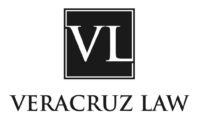The Corporate Transparency Act (CTA), designed to enhance corporate transparency and combat illicit financial activities, has encountered a significant legal roadblock. A recent court injunction has temporarily suspended enforcement, leaving many business owners uncertain about their obligations. As businesses navigate these evolving regulations, staying informed and prepared is essential.
Understanding the Corporate Transparency Act (CTA)
The CTA, enacted in 2021 as part of the National Defense Authorization Act, aims to curb money laundering, tax evasion, and financial crimes by requiring businesses to report beneficial ownership information (BOI) to the Financial Crimes Enforcement Network (FinCEN). This law primarily targets anonymous shell companies used for illegal purposes.
Who Must Comply?
The CTA applies to:
- Corporations, LLCs, and other entities formed or registered in the U.S.
- Foreign entities registered to do business in the U.S.
Exemptions include publicly traded companies, large operating businesses (with more than 20 employees, over $5 million in gross receipts, and a physical U.S. presence), banks, credit unions, and certain regulated entities.
What Must Be Reported?
Companies must disclose information about their beneficial owners – individuals who:
- Own or control at least 25% of the company, or
- Exercise substantial control over the entity’s operations.
The information required includes:
- Full legal name
- Date of birth
- Current residential address
- Taxpayer Identification Number (TIN) or Social Security Number (SSN)
- Identification document (e.g., passport or driver’s license) – including a scanned copy
These details must be kept up to date. Any changes in beneficial ownership must be reported to FinCEN within 30 days.
Deadlines for Compliance
- Existing Businesses (Formed Before January 1, 2024):
Must file their initial report by January 1, 2025. - New Businesses (Formed on or After January 1, 2024):
Must submit their report within 90 days of formation. - New Businesses (Formed on or After January 1, 2025):
Have 30 days to report.
Legal Challenge and Nationwide Injunction
In December 2024, the U.S. District Court for the Eastern District of Texas issued a nationwide injunction halting enforcement of the CTA, arguing that the law may exceed congressional authority under the Tenth Amendment. This ruling effectively paused the reporting requirements for businesses across the country.
However, the situation has been fluid:
- December 23, 2024: The Fifth Circuit Court of Appeals briefly overturned the injunction, allowing enforcement to resume.
- December 26, 2024: The same court reinstated the injunction, pausing enforcement once more.
- December 31, 2024: The U.S. Solicitor General appealed to the Supreme Court to lift the injunction.
As of January 2025, businesses are not required to file BOI reports, and no penalties will be imposed for non-compliance during this period (Reuters, 2024).
What About Nonprofits?
Certain nonprofits are excluded from the CTA reporting requirements. However, not all nonprofits qualify for this exclusion. Here’s how the rules apply to nonprofits:
Exclusion for Certain Nonprofits
Nonprofits that fall under specific categories are exempt from the CTA’s reporting requirements. These include:
- 501(c) Organizations:
- Most nonprofits registered under Section 501(c) of the Internal Revenue Code (e.g., charitable organizations, religious institutions, educational organizations) are excluded from the CTA reporting requirements.
- These organizations are already subject to strict federal and state reporting and transparency requirements (e.g., Form 990 filings).
- Large Nonprofits:
- Nonprofits with more than 20 employees, over $5 million in gross receipts, and a physical operating presence in the U.S. are excluded.
Nonprofits That May Need to Report
Smaller or less formally organized nonprofits that do not meet the criteria for exclusion might still need to comply, such as:
- Unregistered charitable groups: Informal organizations that do not have 501(c) status.
- Nonprofits without formal governance: Small entities operating without robust oversight or transparency mechanisms.
What Nonprofits Should Do
If your nonprofit is unsure whether it qualifies for an exclusion:
- Review Your Organization’s Status: Verify whether your nonprofit is registered as a 501(c) organization or meets the criteria for exemption.
- Consult Legal Counsel: Seek professional advice to confirm whether your organization must file a Beneficial Ownership Information (BOI) report.
- Monitor for Updates: Keep track of FinCEN updates and guidance regarding nonprofit reporting obligations.
Next Steps for Businesses
Although reporting is paused, businesses are encouraged to:
- Prepare in Advance: Gather ownership details and identification documents to ensure compliance when enforcement resumes.
- Monitor Legal Updates: Stay informed about court rulings and FinCEN announcements.
- Consult Legal Counsel: Ensure your business remains compliant with evolving regulations.
If you have questions about how the CTA impacts your business or nonprofit organization, feel free to reach out.
Citations:
- Reuters. (2024). Texas Judge Blocks Anti-Money Laundering Law’s Enforcement Nationwide.
- Wall Street Journal. (2024). Business Ownership Reporting Deadline Extended Following Appeals Court Reversal.
- NatLawReview. (2024). Government Appeals Corporate Transparency Act Injunction to U.S. Supreme Court.

